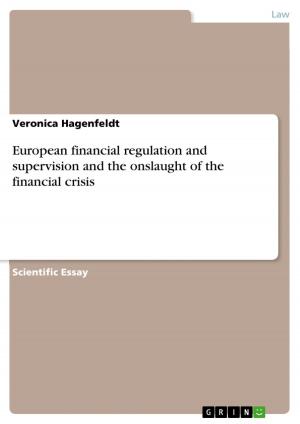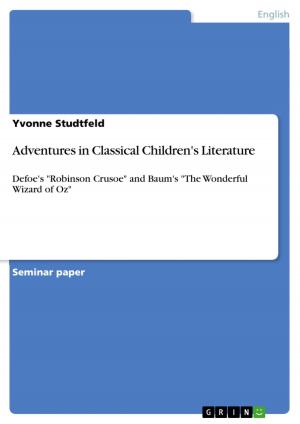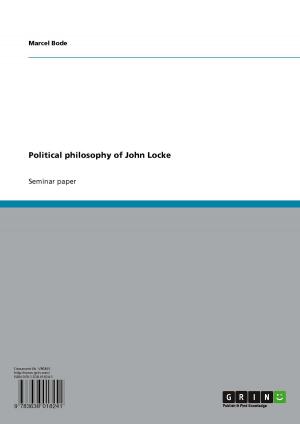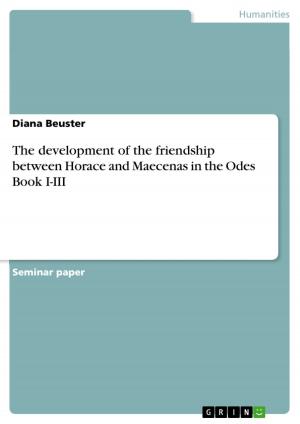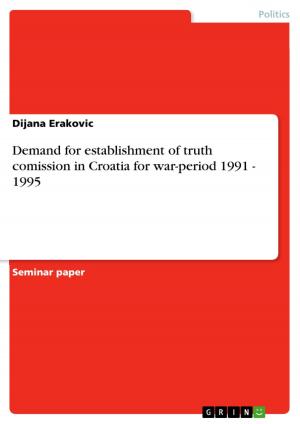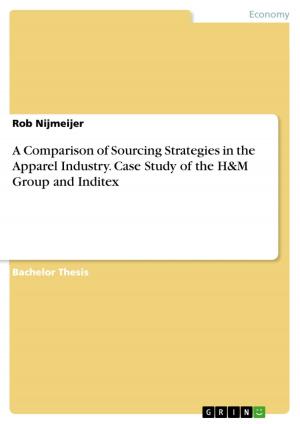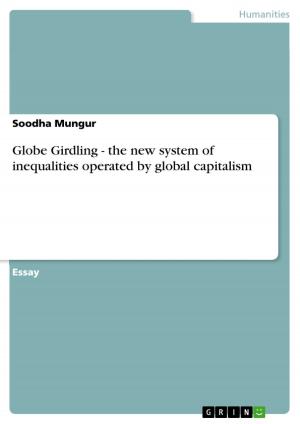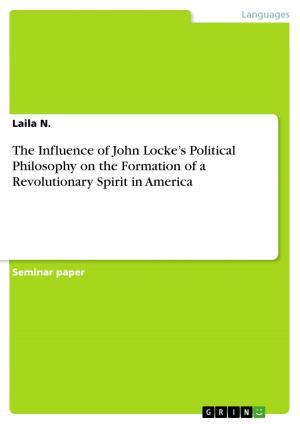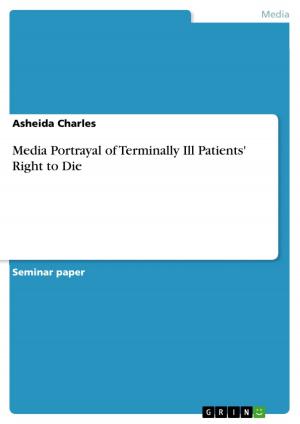| Author: | Anne-Kathrin Wilde | ISBN: | 9783640541881 |
| Publisher: | GRIN Publishing | Publication: | February 19, 2010 |
| Imprint: | GRIN Publishing | Language: | English |
| Author: | Anne-Kathrin Wilde |
| ISBN: | 9783640541881 |
| Publisher: | GRIN Publishing |
| Publication: | February 19, 2010 |
| Imprint: | GRIN Publishing |
| Language: | English |
Seminar paper from the year 2006 in the subject English Language and Literature Studies - Literature, grade: 2,0, University of Bayreuth, course: The Development of Ugandan Literature since Independance, language: English, abstract: Refering to Uganda's long history, theatre also has a long past. The country has experienced a various number of influences by the missionaries, colonialists, Milton Obote's destruction of the Buganda Kingdom and reign of terror and Idi Amin's economic war strategy. It is difficult to define truly African theatre. Theatre always stood under observation from outside. In this way how could it be possible do develop an own Ugandan theatre form? Even before those influences Uganda already hat its own cultural tradition and when alien powers came to the country, life and art still developed but under certain circumstances. In this essay I would like to try to explain the difficulties of defining African especially Ugandan theatre. After that I would like to elaborate on how all those influences contribute to an own theatre form in Uganda if that's really the case. On my way to explain Uganda's theatre tradition I will talk about the whole development up to date, starting with the missionaries that came to the country to 'civilize' the people, also through drama. In the 1920's people discovered that drama is also a possibility to do for living. By that time the first travelling theatres came up. In the 1940's cultural programmes by the Social Welfare used drama to improve peoples' economic status. The 1960's under Obote's regime were the birth of political theatre like the Community Theatre and the Makerere Travelling theatre which was founded by students of the Makerere University, Kampala. Amin's politics let no freedom for cultural development in the theatre arts. Writing under censorship needed new forms by dramatists. Therefore I will show up some representative dramatists for Ugandan literature. Selected examples will be Wycliffe Kiyingi, Byron Kawadwa and Robert Serumaga. With the escape of many artists into exile, a new era of entertainment and commercialisation of the arts developed. In the 1980's the new Theatre for Development came up and I will present the example of Rose Mbowa's Mother Uganda and her children. With the end of twenty years of civil war, theatre became more free but had to deal with new challenges. Commercialisation, privatisation and mediation make it difficult to produce new qualitative plays. In my conclusion I will present that there is a truly African/ Ugandan theatre dealing with the fact, that in every country, life and art are influenced by actions, experiences, opinions which are part of the cycle of life.
Seminar paper from the year 2006 in the subject English Language and Literature Studies - Literature, grade: 2,0, University of Bayreuth, course: The Development of Ugandan Literature since Independance, language: English, abstract: Refering to Uganda's long history, theatre also has a long past. The country has experienced a various number of influences by the missionaries, colonialists, Milton Obote's destruction of the Buganda Kingdom and reign of terror and Idi Amin's economic war strategy. It is difficult to define truly African theatre. Theatre always stood under observation from outside. In this way how could it be possible do develop an own Ugandan theatre form? Even before those influences Uganda already hat its own cultural tradition and when alien powers came to the country, life and art still developed but under certain circumstances. In this essay I would like to try to explain the difficulties of defining African especially Ugandan theatre. After that I would like to elaborate on how all those influences contribute to an own theatre form in Uganda if that's really the case. On my way to explain Uganda's theatre tradition I will talk about the whole development up to date, starting with the missionaries that came to the country to 'civilize' the people, also through drama. In the 1920's people discovered that drama is also a possibility to do for living. By that time the first travelling theatres came up. In the 1940's cultural programmes by the Social Welfare used drama to improve peoples' economic status. The 1960's under Obote's regime were the birth of political theatre like the Community Theatre and the Makerere Travelling theatre which was founded by students of the Makerere University, Kampala. Amin's politics let no freedom for cultural development in the theatre arts. Writing under censorship needed new forms by dramatists. Therefore I will show up some representative dramatists for Ugandan literature. Selected examples will be Wycliffe Kiyingi, Byron Kawadwa and Robert Serumaga. With the escape of many artists into exile, a new era of entertainment and commercialisation of the arts developed. In the 1980's the new Theatre for Development came up and I will present the example of Rose Mbowa's Mother Uganda and her children. With the end of twenty years of civil war, theatre became more free but had to deal with new challenges. Commercialisation, privatisation and mediation make it difficult to produce new qualitative plays. In my conclusion I will present that there is a truly African/ Ugandan theatre dealing with the fact, that in every country, life and art are influenced by actions, experiences, opinions which are part of the cycle of life.


